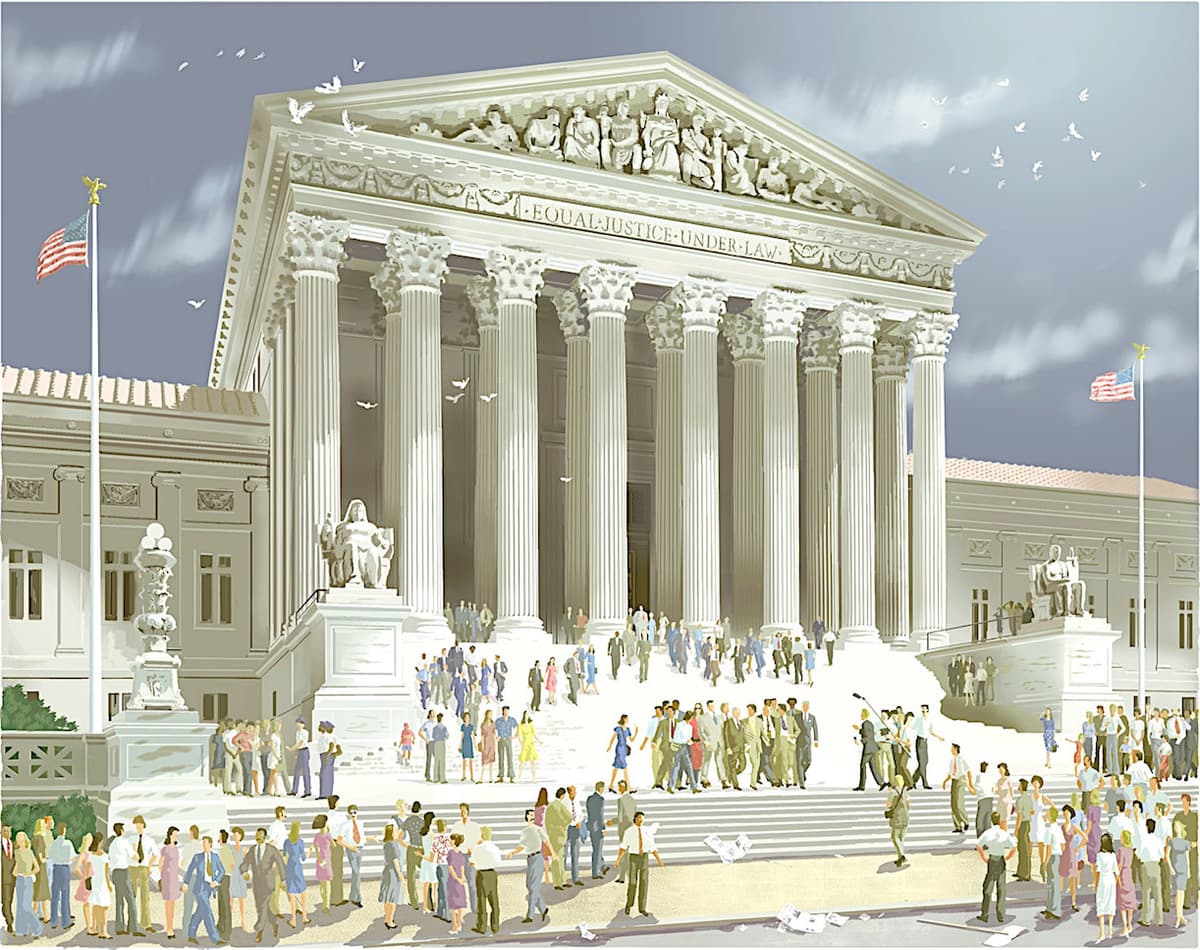An Amicus Prayer for Our Second-Highest Court
A high school football coach, Joe Kennedy, stands, as he kneels, for millions.

God, our God and God of our fathers, we pray that you grant wisdom to the justices of our Supreme Court as they sit next week in respect of the high school football coach who wants to kneel on the gridiron after games and pray. It might be rare for a coach to turn to our highest tribunal to vouchsafe his right to pray. It is not, however, rare for a person invested in a great sport to want to pray to you and, in victory or defeat, take comfort in your powers.
In this sense, the coach, Joe Kennedy, stands, as he kneels, for millions. He was often moved after football games to walk alone to the 50-yard line and, alone, kneel there to pray. Soon, some, eventually nearly all, the team members joined him. The school district, fearing a lawsuit, asked him to desist. When Coach Kennedy refused, the school fired him. Both the district and appeals court concluded that the firing was justified.
Coach Kennedy’s case has reached the Supreme Court as Kennedy v. Bremerton School District. The high court will now turn its attention to, among other questions, whether a public employee must be forbidden to pray in this manner because of our Constitution’s Establishment Clause. This is the part of the national parchment that says: “Congress shall make no law respecting an establishment of religion.”
God, we pray that you help the justices to see why our Founders worded the Establishment Clause that way. For had they wanted to prohibit Congress from establishing a national church, they could have ordained “Congress shall make no law establishing a national church.” Yet someone — you, perhaps? — stayed their hand. Instead, what they ordained was that Congress shall make no law “respecting an establishment of religion.”
Was it not only a prohibition on Congress establishing a church but also a prohibition on Congress disestablishing state churches? At the time, after all, several states had established churches as the state religion. We pray, God, for your guidance in helping our sages — how vulnerable they seem as they hoe the vines of liberty in the foothills under the firmament that you created — see both sides of this question.
We pray to you on this head, God, because our high bench — no doubt for the best of motives — has strayed on this question. It has ruled, as recently as 1962 in Engel v. Vitale, that even nondenominational prayer violates the Establishment Clause. Three decades later, Engel’s precedent was upheld in Lee v. Wiseman, which banned a rabbi from delivering a nondenominational prayer at a middle school graduation.
Yet lately the court has begun to show signs that it sees the light of Sinai, where you revealed yourself. It recently decided against ordering the removal of a cross that had been erected at private cost at Bladensburg, Maryland, to commemorate the loss in World War I of local boys. The justices held that removing the cross after so many decades would signal not neutrality, but a government “aggressively hostile to religion.”
God, we pray that you can show the justices the way to leach that hostility from our public squares and make those who believe in you and pray to you welcome, and to feel welcomed, among the doubters and skeptics and humanists. And vice versa. God, on behalf of friends of the court, there have been filed in this case more than two score amici briefs. We ask you to hear these modest paragraphs as an amicus prayer. Amen.

